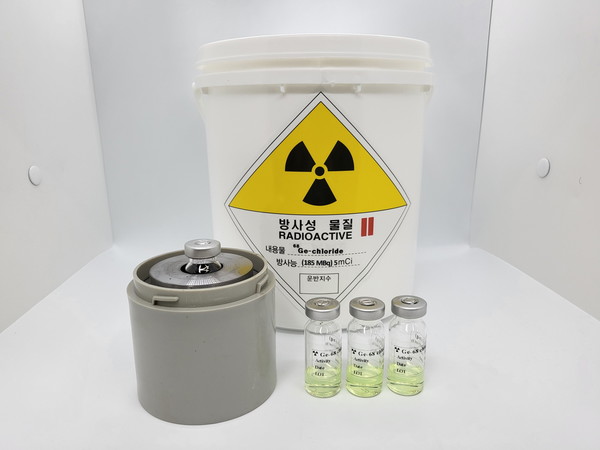Korea Atomic Energy Research Institute (KAERI) said that it has exported Germanium-68, a medical radioactive isotope, to Sanders Medical, a U.S. medical device company.

According to the state-invested institute, the contract with Sanders Medical marks the first time that Korea has exported a radioactive isotope to the U.S.
The export volume is 5mCi (millicurie), worth about 10 million won ($7,837).
Sanders Medical will use the volume for test production of calibration source products. After verification, the institute plans to supply 100mCi during this year additionally.
Germanium-68 is a radioactive isotope raw material for cancer diagnosis and is a calibration source to maintain the accuracy of radiographic imaging equipment, such as PET (positron emission tomography). The isotope has a relatively long half-life of about 270 days, which, in turn, allows the isotope for transportation for long periods.
Technologically advanced countries, such as the U.S., Russia, and Germany, had occupied more than 90 percent of the international Germanium-68 market. However, a recent surge in demand for Germanium-68 has made securing a new supplier important.
KAERI succeeded in producing Germanium-68 for the first time in Korea using an RFT-30 cyclotron, A particle accelerator that accelerates protons to produce radioactive isotopes for medical use, in 2019. Since then, the institute has gradually improved its research facilities and radioisotope production systems to increase international competitiveness.
To stabilize the production of Germanium-68, the cyclotron must be able to irradiate 35 MeV (megaelectron volt)-level protons for a long period over several days. Therefore, the cyclotron possessed by the KAERI has the same performance as overseas cyclotrons as the institute was able to newly develop high frequency, beam output, and irradiation systems.
KAERI has also developed a technology to improve the performance of the Germanium-68 production system by using a pure single metal that minimizes the possibility of mixing with other nuclides during radioisotope production.
“We will continue to supplement research facilities to produce radioactive isotopes locally,” KAERI President Park Won-seok said. “We hope that this contract will serve as a starting point for disseminating the institute’s technological prowess to the international market."

